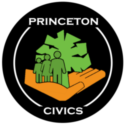By all accounts, the Princeton Public Schools District is a very diverse place for students and staff alike. With an over 50% minority enrollment rate as well as a diverse faculty body, you are certain to find people of all walks of life attending PPS. As an Asian-American student, I am a part of the 20% of the student body that is Asian, a number which makes me comfortable at school. However, one statistic in the district administration continues to lag behind: Despite high Asian student enrollment numbers, no Asian representation is present in the Board of Education, and only one prominent role in district administration is occupied by an Asian person: Assistant Principal Cecilia Birge, at PHS. Many benefits would be realized if this is changed.
For Asian families, the benefits would be manyfold. Students would have administrators who could understand our experiences more deeply and backgrounds, leading to better connections. Sharing culture and heritage diversifies the school, resulting in a greater sense of inclusion and community. These bonds allow Asian administrators to look at issues with greater empathy and provide equity to Asian families. One noteworthy aspect of Asian culture and education that they would be able to influence is the prioritization of academic excellence in increasingly difficult classes. Oftentimes, Asian high school students take summer courses in math and sciences to skip to even higher level courses in the school year and cram their schedules with many AP and honors classes. In contrast, the recent nationwide emphasis on student mental health has led to discussions over the value of summer advancement courses and class cramming, and even proposed removing or re-evaluating these opportunities with the goal of reducing students’ stress levels. In this scenario, Asian-American administrators can balance the concerns of well-meaning district staff with the importance of educational competition to Asian families; appropriate solutions can be found to address mental health needs of students as well as uphold the traditional values of their families.
The entire community also benefits from the input of new perspectives. Asian leadership would galvanize the Asian population, increasing our engagement with Princeton civics, and the town will reap the benefits. One such example can be provided from looking at the COVID-19 pandemic. In the early phase of the pandemic, members of Princeton’s Asian community, led by PHS Assistant Principal Cecilia Birge, raised PPE, food, and monetary donations for Princeton’s small businesses and school district. Their efforts sparked a movement that raised $26,000 in cash and $36,000 in PPE, food, and other essentials. This collective effort shows that increased Asian leadership in Princeton would allow for more communities to be involved within the town.
Princeton has made many strides this year, with the new district equity plan to extend racial literacy education and resources to all K-12 classrooms front and center. To capitalize on these marks of progress and to make Princeton Public Schools a more inclusive and equitable learning environment, more Asian representation is needed in our district’s leadership positions.
– Han Li
